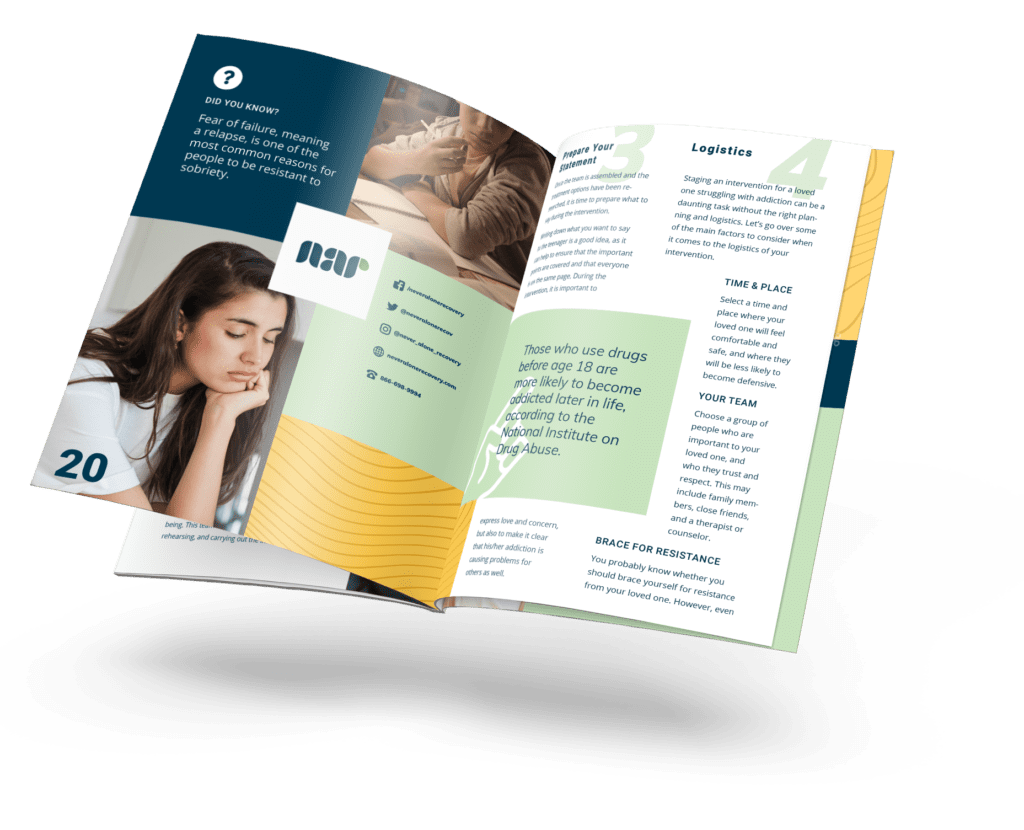One of the most challenging parts of addiction is telling others you care about that you are an addict. This is particularly difficult because most addicts are, by nature, inclined to try to keep their chemical dependence a secret for fear of judgment, interference, and/or consequences. If you’ve been struggling with telling your family about your addiction, we’re here to clear up some of the misconceptions and misgivings you may have. The fear of coming clean about your addiction is an important and necessary step on the road to recovery.
If you are dealing with addiction, then you need a strong support system around you. Here’s what you should know when it comes to sharing your struggles with your loved ones.
How to Tell Your Family You Have an Addiction
Addiction is hard to hide, so it’s possible—perhaps even likely—that your family may already be aware you are suffering from addiction. Your family probably knows you better than just about anyone and may have seen signs that you are struggling, even if they don't know the source of those struggles.
Fortunately, there are a number of ways to tell your family about your addiction. Here are just a few.
Just Say It
Like ripping off a band-aid, sometimes the best option is to just come out and say it. It may feel a little brash, but the key is to not stress about how to say it right; just say it. Because if you’re waiting for a time when you feel comfortable with your confession, the reality is that admitting to a substance abuse problem is an uncomfortable situation. However, admitting it is the first step towards getting the support and help you need.
Apologize
Addiction affects more than just the person who’s addicted, which is why it’s often referred to as “the family disease.” If you are ready to admit to your addiction, then it’s important to recognize that your addiction has surely had a negative impact on those around you.
It’s possible—perhaps even likely—that your family may already be aware you are suffering from addiction.
As you tell your family about your addiction, you might consider apologizing for how your addiction has hurt your family. Let them know you’re ready to stop the cycle of addiction. Conversely, try to remember that this is going to be an emotional discussion, so try to be understanding towards your family.
Share Your Treatment Plan
If you are ready to get help, then consider sharing your treatment plan with your family when you tell them about your addiction. This could be as simple as letting your family know about your intent to receive clinical treatment and that you would really appreciate having their support.
If you want your family to know you are serious about getting help, having a plan in place is a great expression of your dedication to overcoming your addiction.
Ask for Support
Arguably the best way to share that you are an addict is to ask for your family’s support. A support system is one of the most necessary ingredients for a successful recovery, so appealing to your family for their support will both inform them of the problem while extending the opportunity to be part of the solution.
You can ask for their support in general or ask for specific types of support. Let them know if you need advice, guidance, or help in finding a treatment center. The key is to be open about which type (or types) of support you need.
Release Shame
Being addicted to alcohol or drugs often induces feelings of intense shame and disappointment in oneself. Although you may feel embarrassed, you shouldn’t feel ashamed to admit your problem and ask your family for help. Because the very act of admitting you are an addict is evidence that you want to make positive changes in your life, which is definitely something to be proud of.
In short, don’t let feelings of shame be what hold you back.
Your loved ones will likely have questions, especially if this is the first time your family has encountered an addiction.
Provide Support for Your Family
When you tell your friends and family about your addiction, consider bringing them some resources to review. After all, your loved ones will likely have questions about substance use disorder, especially if this is the first time your family has encountered an addiction.
In addition to the Never Alone Recovery blog, you can refer your loved ones to The National Institute on Drug Abuse where many questions about addiction can be answered. It may also be a good idea to offer information regarding local and online support groups for the family members of individuals suffering from addiction. Support groups can be a real asset to family and friends who can solicit advice and insight from others who have experienced the same thing.
What to Do Next
Once you’ve told your family about your addiction, you’re almost ready to begin your recovery journey. The next step would be to put together your plan for treatment.
But how do you choose the right rehab(s) for your needs? Rather than trying to figure this out on your own, Never Alone Recovery offers placement and matching services to ensure that individuals entering rehab have all their needs met.
For more information or to get started with your free assessment, call our toll-free number today. Be sure to follow us on social media for more great tips and advice about facing your addiction.
family


We're On Medium!
We're sharing the recovery stories of our community members. Be sure to check out Never Alone Recovery on Medium to read those featured stories.
YOU MAY ALSO LIKE...
July 6, 2023
November 2, 2023
January 31, 2022
January 10, 2023
December 12, 2023
DISCUSSION